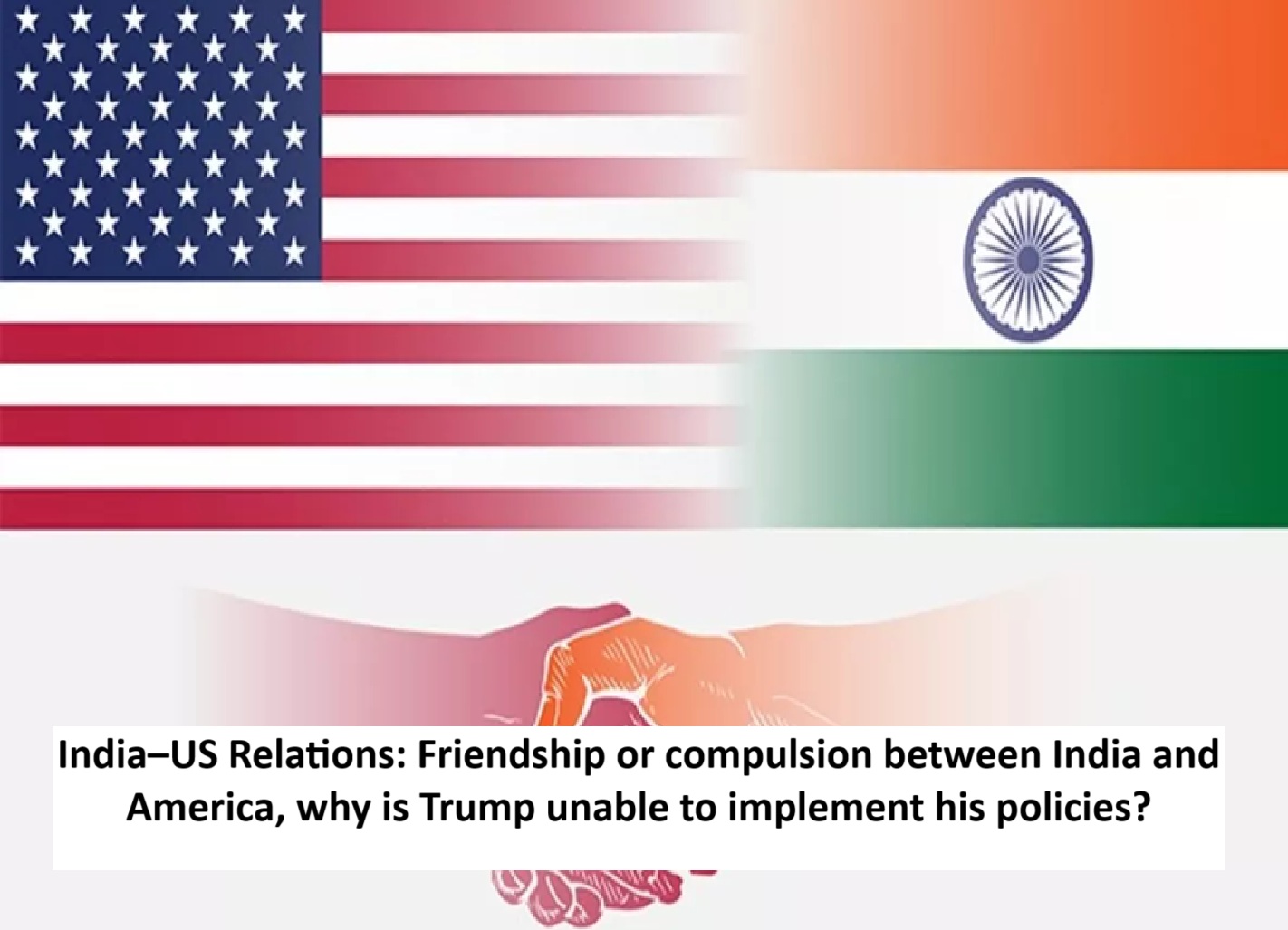
News Topical, Digital Desk : In his second term, President Trump is making major changes in American foreign policy. Indo-American relations have been improving for the last few decades. Improving relations with India is in America's own interest and it is the responsibility of the American administration not to ignore Indian foreign policy.
Foreign policy expert and JNU Assistant Professor Dr. Abhishek Srivastava says that America is going through internal crises and in his second term, President Trump seems unable to implement many of his policies. Limiting or weakening value-based cooperation between countries on global issues is raising questions on American leadership.
However, it would be premature to say that the US wants to pursue bilateral relations by ignoring India's interests. In some cases, the US may emphasize strategic partnership with India to advance its own interests, but this may not always completely coincide with India's interests.
For example, the United States wants a strong partnership with India to boost security cooperation to counter China, but it is also essential for India to meet its own security and strategic interests.
When did Pakistan get the status of non-NATO ally?
According to Dr. Abhishek Srivastava, historically, Pakistan was America's ally in this region against the Soviet Union during the Cold War. In 1987, America gave Pakistan the status of non-NATO ally, which continues even today. Pakistan getting the status of non-NATO ally in the war against terrorism and countries like Turkey being members of NATO raise questions on the US policy against global terrorism.
US-India relations
Dr. Abhishek Srivastava said that a new chapter has begun in the relations between India and the United States in the post-Cold War era. The relations between the two countries changed from isolation to engagement. There were many political, economic and strategic factors behind this change. After the end of the Cold War, America has reshaped its policies towards the South Asian region.
The United States has developed an inclusive economic, military, and political partnership with India, and China's aggressive expansionist policies in the Indo-Pacific region have taken relations between the two countries to new heights.
India and the US now share a common interest in maintaining stability in the Indian Ocean region and an adequate balance of power in Asia. Global politics will be determined by the Indian Ocean in the years to come. International politics is increasingly influenced by realism. In such a situation, our shared values like democracy, freedom, pluralism and diversity are not enough, and may sometimes be contradictory.
National interest depends on many factors which keep changing from time to time. If only value-based relations mattered, the two countries would have formed an alliance or become partners years ago. History teaches us that these values are neither necessary nor sufficient for the development of relations, but national interest is paramount.
Ignoring India's growing influence in global politics or not responding in one voice to international terrorist threats can harm the mutual cooperation between the two countries. After the Pahalgam terrorist attack, America's Pakistan policy seems contrary to the spirit of its 'Global War on Terror'. America continues to adopt opportunism for its interests.
It is also important for India to build a strong partnership with the US as well as other countries to advance its interests. It is up to India's independent and autonomous foreign policy to decide how it will take its partnership with the US forward. India needs to consider both the advantages and disadvantages of its partnership with the US. The way forward will have to be decided based on this.
--Advertisement--

 Share
Share



